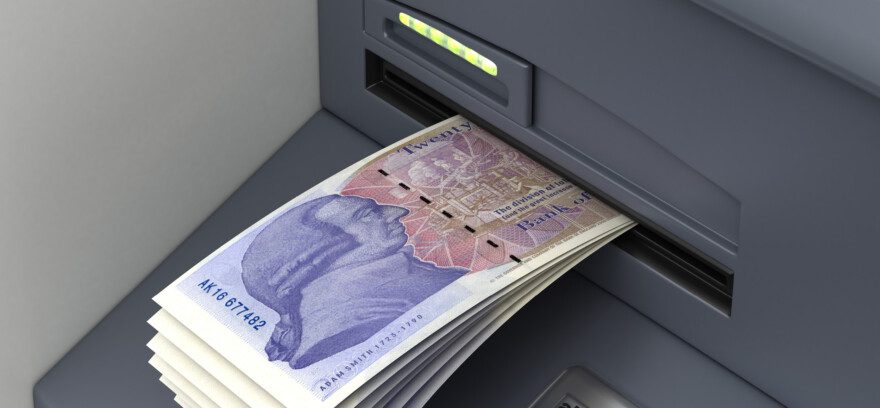UK markets made slight gains this week, with the FTSE 100 Index rising by 0.47% to trade at 7,510 points at the time of writing. UK households withdrew a record amount last month, suggesting more customers are looking for higher interest rates elsewhere and tapping into their savings to maintain living standards amid high inflation.
Data published by the Bank of England on Thursday showed households took out £4.6 billion from banks and building societies in May, the highest level of withdrawals since monthly records began in 1997. The data comes as households contend with stubbornly high inflation, which stood at 8.7% in May, as banks fall under greater pressure to pass on rising interest rates to savers.
Bank of England figures showed the effective rate on instant-access accounts dropped to 1.33% in May. This lags considerably below the central bank’s benchmark rate, now at a 15-year high of 5%, and rates for two-year fixed mortgage deals, which are above 6%. The pass through of higher interest rates on these accounts has been unusually weak since the UK central bank began raising interest rates in December 2021.
The central bank’s figures also showed that mortgage approvals for house purchases rose to 50,000 in May from 48,690 in the previous month. The numbers were higher than 49,700 forecast by economists polled by Reuters, but well below the average of 66,000 between 2015 and 2019 as higher mortgage payments hit prospective buyers.
Commodity markets
In the commodity markets, Brent crude futures traded around $75 per barrel on Friday, boosted by a bigger-than-expected fall in US inventories, but fears that rising interest rates could dent global economic growth limited further gains. The Federal Reserve, European Central Bank and the Bank of England have all indicated willingness to raise interest rates further this year to bring down inflation.
Adding to pressure, annual profits at industrial firms in China, the world’s second-largest oil consumer, extended a double-digit decline in the first five months as softening demand squeezed margins. The lack of prospects for fuel demand growth has limited the gain in oil prices, even with supply curbs by oil producers. Facing falling prices, Saudi Arabia pledged to sharply cut its output in July, adding to a broader OPEC+ deal to limit supply into 2024.
Gold traded around $1,905 an ounce on Friday, weighed down by strong US economic data and hawkish messaging from the Federal Reserve.
US equity futures
US equity futures rose on Friday after an upwardly revision to GDP growth in Q1 and a fall in initial jobless claims last week strengthened the case for the Federal Reserve to continue to raise interest rates.
In Thursday’s regular trading session, The Dow Jones Industrial Average rose 0.8%, the S&P 500 Index gained 0.45%, while the Nasdaq Composite remained unchanged.
US GDP growth for the first quarter of 2023 was revised sharply up to 2% from 1.3%, while the number of Americans filing new claims for unemployment benefits fell last week to 239,000, the most in 20 months.
Federal Reserve Chair Jerome Powell talked tough on inflation during a monetary policy session in Portugal on Wednesday, saying he expects multiple interest rate increases ahead and possibly at an aggressive pace. The comments reiterate a position taken by Powell’s fellow policymakers at their June meeting, during which they indicated the likelihood of another 0.5% increase through to the end of 2023.
The futures market is now pricing in a 79% probability of a July rate rise, as central bankers seem ready to tolerate a mild recession to hit their 2% inflation target. Inflation has been falling in the US and the Eurozone, but excluding energy and food prices it has been slower to decline. Powell said that while goods and housing prices had fallen, the central bank still had not seen any real improvement in the labour-intensive services sector. Wage pressures are still high, but are coming down, although there are still 1.7 vacancies for every unemployed person in the US.
The information provided in this communication is not advice or a personal recommendation, and you should not make any investment decisions on the basis of it. If you are unsure of whether an investment is right for you, please seek advice. If you choose to invest, your capital may be at risk and the value of an investment may fall as well as rise in value, so you could get back less than you originally invested.
